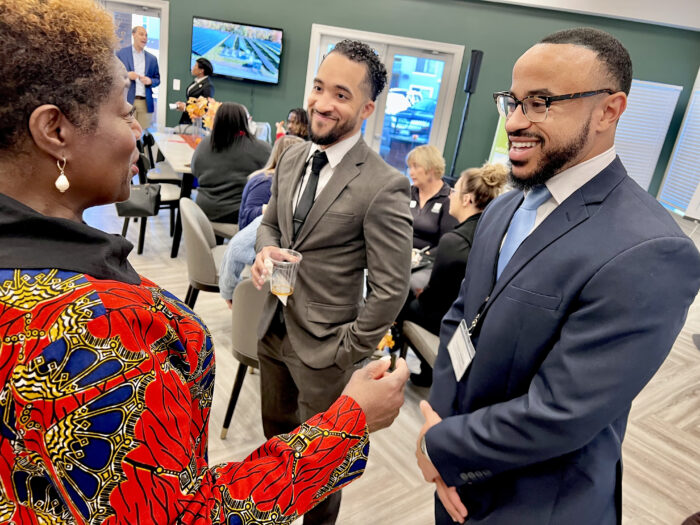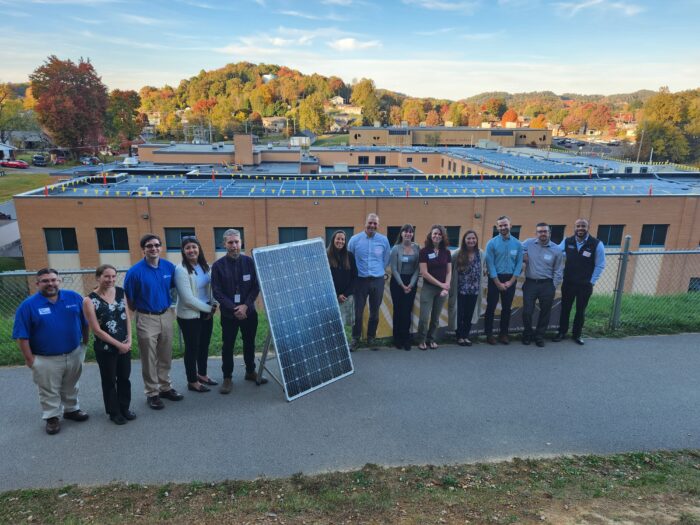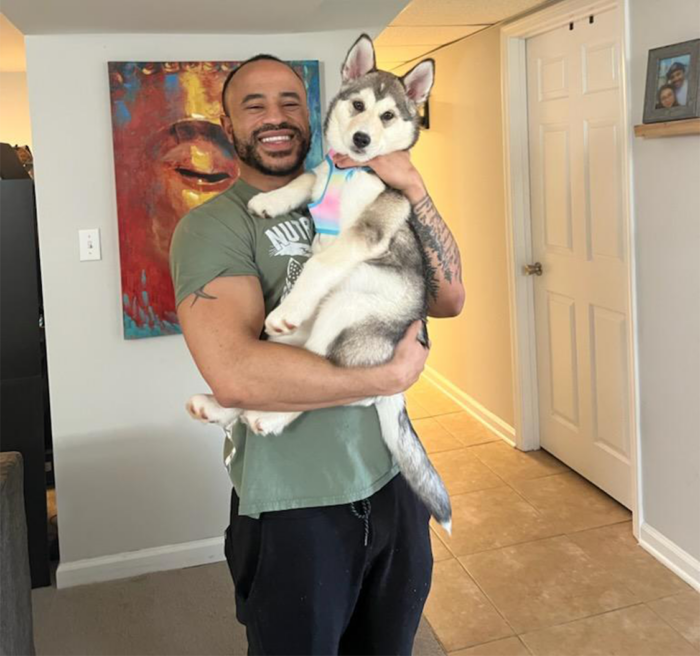How Associate Attorney Josephus Allmond is tackling inequities
The first time many SELC colleagues met Associate Attorney Josephus Allmond was through a computer screen during the early stages of the pandemic. He had graduated from Duke University School of Law and was working for a solar developer in his hometown of Chico, California, when he applied for the organization’s Glynn D. Key fellowship.
Allmond is a fellow in the program for law students and practicing attorneys who have a strong interest or demonstrated commitment to working to advance environmental justice.
We caught up with Allmond to ask what fighting for environmental justice looks like in the South, about the current state of solar access in Virginia, and about his new Alaskan Malamute puppy, Aurora.
After seeing the differences in how just a zip code can impact your quality of life and the pollution you bear, I was excited to try to tackle some of those inequities.
Associate Attorney Josephus Allmond
What drives your interest in advancing environmental justice?
I grew up in different places throughout the country and had the opportunity to experience some lower income areas and apartment buildings, as well as living with my dad in a home in a more well-off neighborhood. After seeing the differences in how just a zip code can impact your quality of life and the pollution you bear, I was excited to try to tackle some of those inequities.
What does that look like in the South?

When people think about environmental injustice, they might imagine urban areas with a lot of pollution from factories, but from my time in the South, I’ve seen how these environmental justice matters impact rural communities, too — like in our work to stop the Lambert Compressor Station that was proposed to support the Mountain Valley Pipeline in Pittsylvania County. There, we were working with a rural community that has a high population of Black residents who are already burdened with two other compressor stations.
Environmental injustice is not just an issue in larger cities, it happens anywhere developers can push their agenda over a population that doesn’t have as much political power.
What interests you about environmental conservation?
Political science was always my passion. I transferred to Northern Arizona University from community college to major in political science and chose sustainability as my minor because I thought it sounded interesting. After a few classes in sustainability and environmental policy, it clicked for me that climate change is the biggest generational problem we’re facing. I always knew I wanted to go to law school, but that experience helped me decide I wanted to be an environmental lawyer and help work on climate change issues.
Historically, environmental conservation work has been criticized for its lack of diversity. What are the benefits of making the space more welcoming to people of all backgrounds?
By drawing Black and Brown, Latino, and Indigenous groups into the environmental movement, we make it more holistic. There are differences in the ways those groups experience life in America and I think each one has a really unique perspective when it comes to addressing environmental harms that have been brought in to their communities. Including those groups of people as we continue to address some of those injustices will only ensure that we’re doing it in a more equitable way.
From the air we breathe, to the water we drink, to how communities are included in the public participation processes of different agencies, it all has an impact on the way marginalized groups experience life in this country.
Associate Attorney Josephus Allmond
Environmental justice touches so many different aspects of our lives that it really is a social justice issue. From the air we breathe, to the water we drink, to how communities are included in the public participation processes of different agencies, it all has an impact on the way marginalized groups experience life in this country.
Your recent work is focused on expanding solar access in Virginia as it booms across the South and nation. What’s the state of solar in the Commonwealth?

People are excited about the clean energy transition and the fact that we’re going to be getting our power from a greener source that isn’t going to harm the health of the people nearby. The Inflation Reduction Act has incentives for solar development that can be real game changers for the industry throughout Virginia.
We’re starting to see some tension between the large, utility-scale projects and how they might impact farms and forests. There was a stakeholder process last summer and the state’s Department of Environmental Quality is going to continue to work on regulations that will tell developers how to design their projects when they site them on farms and forests to mitigate damage. We’re hopeful that those regulations will allow utility scale solar growth to continue to happen in Virginia, but to happen in a way that protects those important resources.
With the numerous incentives contained in the Inflation Reduction Act and these regulations from DEQ, I think there’s a big opportunity to increase the amount of solar in Virginia.
What are the top hurdles to growing solar access in Virginia right now?
One of the biggest hurdles we’re working on with our friends at Appalachian Voices is the fact that Virginia’s shared solar program is only available to Dominion customers. The millions of Virginians that rely on Appalachian Power Company for their power currently can’t participate.
Shared solar is critical for allowing folks who can’t get residential rooftop panels installed on their own homes to be able to participate in the clean energy transition.
Favorite Southern food?

The gumbo a family friend makes for Christmas.
What do you do when you’re not at work?
When I’m not at work, I’m usually working out or watching some of my favorite shows on Netflix or Hulu. Maybe reading. I’m also taking care of a puppy now.
What are you listening to?
Heroes and Villains by Metro Boomin. He’s one of my favorite producers.
What are you reading?
The Color of Law. It’s a book that our coworker Emily Francis loaned me that looks at how the U.S. government contributed to the segregation in housing that we still see to this day, from the federal, state, and local level.
